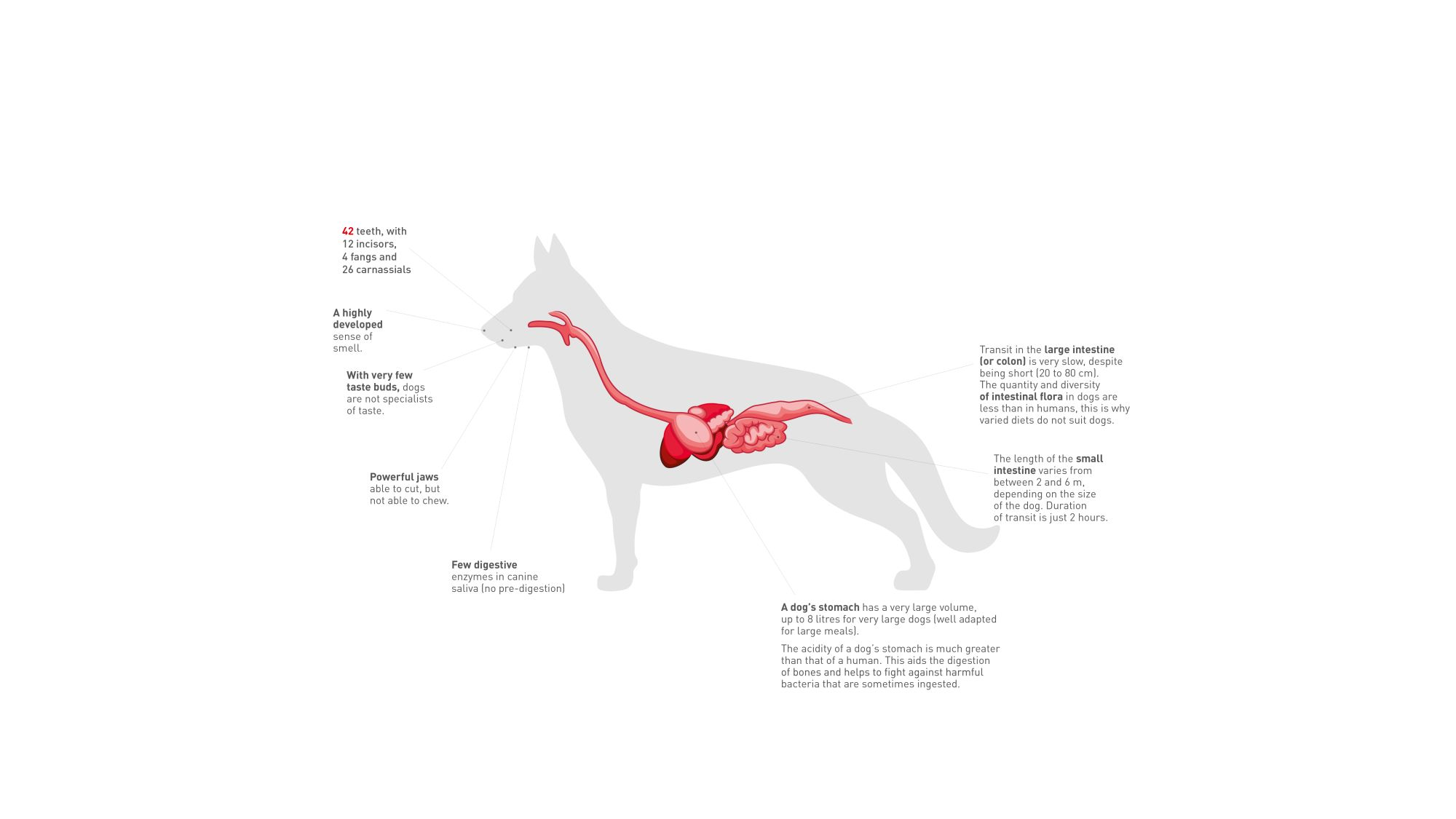How does your dog's digestive system work?
Article

Some dogs love all food, and others are pickier. No matter your dog’s eating habits, the right diet, specifically tailored to their needs, is important in helping to support their health and wellbeing. Texture variation, for example, can help make food more appealing to your dog’s palate, but what happens next is indispensable to transforming food into healthy and nutritious fuel, and this all takes place in their digestive system.
In dogs, digestion begins in the stomach where digestive enzymes are released, right after the food is swallowed. The small intestine might be called ‘small’, but it provides a large surface area to allow the nutrients from the food to be absorbed by the body. The small intestine is also associated with a rich network of blood vessels, that help transport these nutrients to various parts of the body to be used. Finally, the large intestine absorbs water from the ingested food, and transports the remaining waste to its final destination, back to the outside world.

And, what’s the role of microflora you ask? Well, it’s composed of a variety of bacteria and other micro-organisms, which when well-balanced, helps contribute to protecting your dog’s health and assisting the digestive process.
Why is digestion different for a puppy?
Puppies aren’t adult dogs yet, which means their digestive system is still immature and does not have the same digestive abilities as an adult dog. At first, their stomach can only process their mother’s milk, or a similar content substitute milk. Over time, other enzymes important in the digestion of food increase in their digestive tracts, enabling them to start digesting solid food. At the time of weaning, usually beginning at 4 weeks of age, a puppy’s digestive capacity is not yet fully developed. The slow introduction of solid foods, in combination with their mother's milk, helps them transition slowly to having a diet that is comprised of 100% solid foods by about 8 weeks of age. Ensuring we support this weaning process with a high-quality diet is key to helping reduce tummy upsets such as diarrhoea, and help support growth.
It is always recommended to feed a high-quality puppy diet that is appropriate for your puppy’s age and breed, to help support their digestive system, and growth as best as possible.
How can nutrition help?
To help support a puppy’s developing digestive system and to ensure they receive all the critical nutrients from their diet to support growth, it is imperative to provide them with a quality puppy diet. Puppy diets differ from adult diets as they contain specific nutrients, uniquely needed by puppies. These nutrients are highly digestible, providing more nutrients to be absorbed by their immature digestive tract. Targeted nutrients for gut health such as prebiotics, can also assist by boosting the good digestive microflora and help your puppy grow into a healthy dog, free from digestive upsets.
Related Articles
Like & share this page